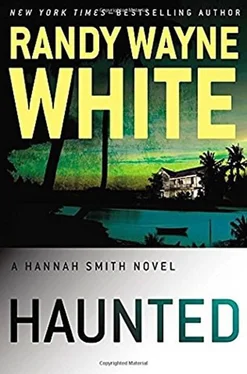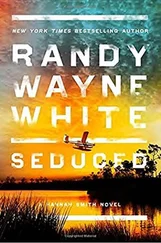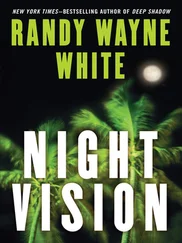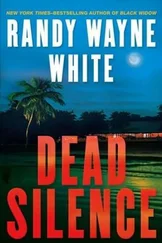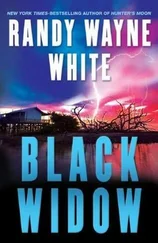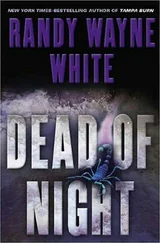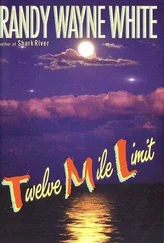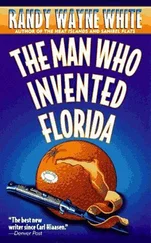Words from America’s bloodiest war also grated at my conscience: For them who runs, the fat pine is strung at every fence row. The Gerillas has been loosed & hells flames is ready.
I had felt shamed by Ben Summerlin’s callousness. I’d condemned his behavior as “inhuman,” yet here I was stealing his plan of attack because I did not possess his resolve or war-hardened cunning. If anyone had a right to feel shame, it was the women who anchored my family history, Hannah and Sarah Smith. Unlike them, I was a modern girl. I had been pampered by current times and was unprepared for the realities of survival in this hard land.
All sobering, all too true, but these negative tangents did not address the task at hand.
Better to think about a cozy houseboat where, over coffee, Joey Egret had made up for his shyness by discussing his class on hazard reduction burning. He’d used terms like drip torch , fuel load , wet line , and flank fire . Lots of others that went over my head, but the basics stuck with me. I grew up in a house that had only a fireplace for heat, so fire-building skills are always of interest.
My aunts Hannah and Sarah might have at least smiled at that.
When Belton and I were ready, we started the palmettos burning in such a rush, I can’t claim skill was involved. Sap pine dabbed with combustible gel will blaze no matter who strikes the match-or Lucia’s lighter, which I chose not to use. Belton went one way, I went the other. I’d found a root so rock hard with sap I needed only a match to start it burning. That gnarled fork became my torch, which I used to light more pine fragments as I hurried along, starting a new fire every ten yards or so, palmetto leaves crackling with heat and rising flames as the wind tunneled beneath.
A factor I hadn’t considered was what fire does to a person’s night vision. I couldn’t see beyond the torch, but details near my feet were as crisp as noon. This saved me from stepping on a rattlesnake that hadn’t bothered to coil, but it also cloaked Oliver’s movements. My response was to extend the fire line only a little farther before I tossed the torch away and jogged back to find Belton.
He, too, was finished. Stomach cramps had forced him into the bushes, so I allowed the man privacy. Stood there, my bag at my feet, and for the first time got an overview of what we had done: a hundred yards of burning palmettos, some only sparking while other sections blazed. It was because of the vagaries of wind-another factor I hadn’t considered. I had hoped my inverted arrow design would lure and then trap Oliver by funneling him into the very heart of the flames. The wind, however, shifted and ricocheted and fueled random designs of its own.
I began to worry, but there was nothing to do but stand back and watch. To the east was higher, drier ground. The waist-high fire we’d started had already jumped a distance and become a separate entity, a ravenous wall that shot sparks into the sky while it pushed toward a lone pine tree far away. Those sparks sailed and tumbled in the wind. Some landed in a meteorite arc and generated small blazes of their own. Most sputtered and died. A few did not.
To the west was cypress swamp and the river basin, cooler areas that stirred breezy subcurrents. Those currents nudged flames northward despite a gusting northeast wind. Patches of fire appeared to leapfrog, desperate to dodge the cooler air. They moved in a counterflow and were soon feeding on brittle palmettos behind us.
Belton stepped from the bushes, his jingling belt muted by the seesaw gusting flames. “We’ve got to get out of here. This whole damn field’s going up.”
I had already shouldered my backpack, ready to move, but I didn’t move or respond because of what I saw gliding toward us: a flashlight, maybe a quarter mile away, a white mushroom glow that searched the ground, then went out. It angled from the northeast, our only corridor of escape.
“That can’t be Oliver,” Belton said. He had to raise his voice to be heard. “Just a minute ago, he was south of us. Nothing on earth can move that fast. Maybe it’s a rancher who saw the fire.” Sick as he was, the man was nervous enough to finally address the creature by name.
I noticed the slip, even while Ben Summerlin’s words gnawed at me, but from the aspect of the quarry, not the predator. For them who runs, the fat pine is strung at every fence row.
I shook my head. “That’s what he wants us to do, go running toward that light for help. He’s upwind now. That means his nose is no help, so he’ll lie flat in the palmettos and use his ears. Or climb a tree and track us by sight. With all this smoke, we won’t know he’s close until he’s on us. Probably from behind. First me, then you.”
Belton started to say, “You give that damn thing too much credit”-a statement that ended with a wince and a groan. He bent with another spasm, face pale. “There’s nothing left in my stomach, but it just gets worse.” He grimaced again before looking at me, helpless. “Take the gun, I understand. Save yourself, dear. Please. ” He staggered toward the bushes while he undid his belt.
The fire hadn’t encircled us but soon would. Wind whistled through palmettos with the rhythm of waves, each brown fan vibrating, while flames responded with a choral roar. The chorus oscillated with ascending and descending notes: a snoring giant, a waterfall. The voice of fire assumed many forms.
Hypnotic. It was a seesaw melody that stilled a place inside me. As scared as I was, it allowed me to think. On the houseboat, Joey Egret had explained the dangers of setting a head fire. Head fires were impossible to control. It was better to start a blaze that crept slowly upwind-a burn back, he’d called it. The term was familiar. I had used it in a general way, but didn’t understand the subtleties until now.
I put down my bag and called to Belton. “We’re not going anywhere.”
Because of the noise, I had to repeat myself twice. Then explained, “The fire can’t reach us if there’s nothing left to burn. That’s what we’re going to do-clear a big, safe space and stay right in the middle. We’ll sleep here, for all I care. The important thing is, Oliver will have to walk through fire to get to us.”
Before Belton could argue, I told him, “Say good-bye to those bushes and start collecting wood.”
***
THE HEAD FIRE we’d started charged southward, a gelatin wave that gained speed and width but also provided a space to retreat to when I torched the bushes behind us. Our retreat wasn’t hurried. No need. This was a different breed of fire. It sputtered and sparked, seeking fuel downwind, but there was no fuel, only scorched and smoking palmettos that refused to burn twice. So the flames I nursed stayed low and crept north at an angle. They reminded me of sailboats running close to the wind, pointing hard into the wind, before coming about and tacking. Fresh flames sparked a windward course. The mating of air and fire produced much softer choral notes: rain on asphalt, a woman’s sleepy laughter.
Smoke was our only enemy… our only natural enemy, at least. We backed away, pulled our shirts over our mouths, and waited while the earth smoldered, the fire behind us a searing heat that I truly believed was our protector. We scanned the northern horizon and tried to see beyond the flames. In the distance, cows bawled-dark specks on a plain of milky blue. Smoke spun itself into dust devils, mini-tornadoes that sometimes charged us before levitating toward the moon.
After a while, Belton asked to use my backpack as a seat. The man was exhausted yet felt the need to talk. Something was nagging at him-some lie he had told about my great-uncle’s journal, was my suspicion. But after he had circled the subject without getting to it, I told him, “Tomorrow, after you’ve slept and had a shower, we’ll talk. Or write it down, if your conscience is bothering you, and I’ll read it when you buy me dinner.” Then I made a joke, saying he had so much soot on his face, he was invisible, so he had nothing to worry about. Like a commando.
Читать дальше
